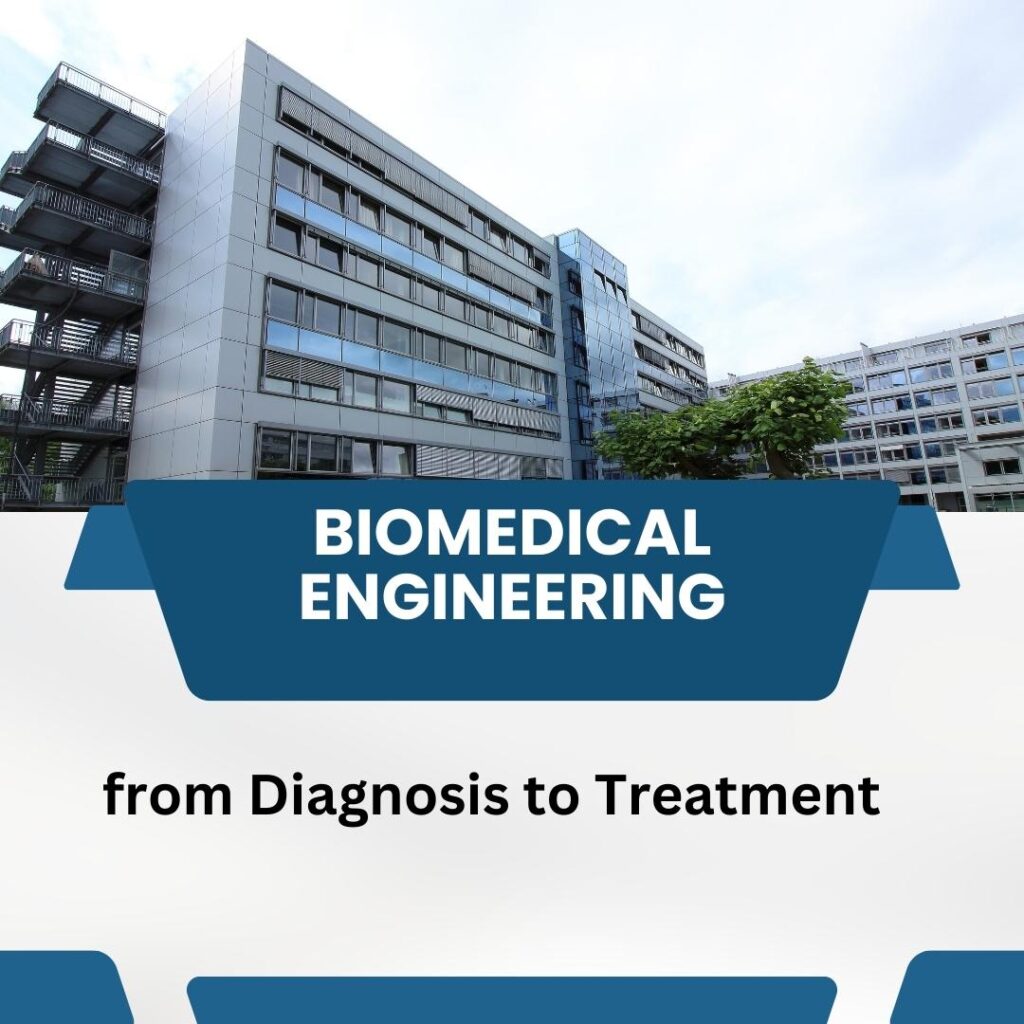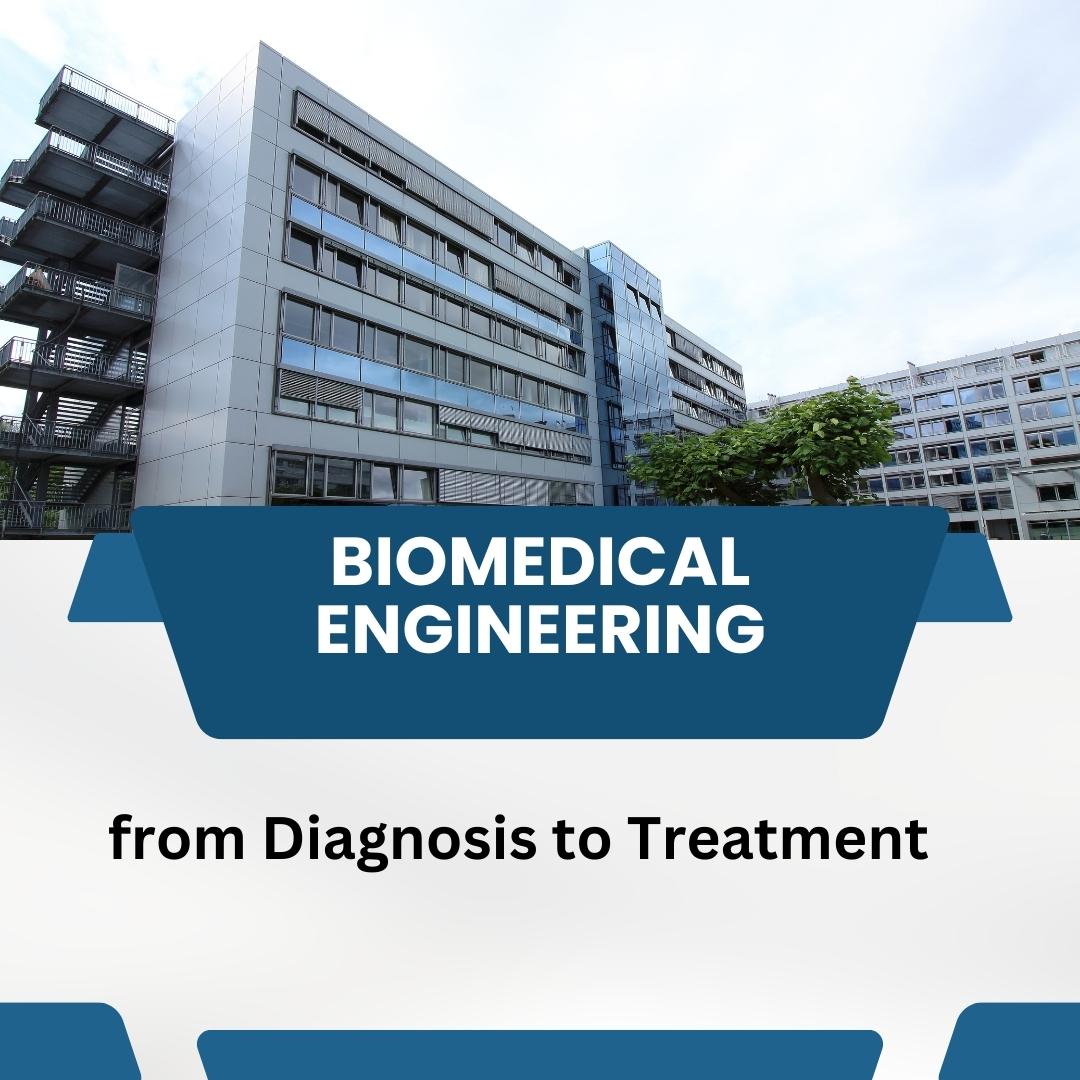Advancements in Biomedical Engineering: From Diagnosis to Treatment

Biomedical engineering is a rapidly evolving field that combines the principles of engineering, biology, and medicine to develop innovative solutions for healthcare. In recent years, remarkable advancements have been made in biomedical engineering, revolutionizing the way we diagnose and treat various medical conditions. This article highlights important recent innovations in the field and provides a glimpse into the future advancements that hold great promise for improving patient care.

What is Biomedical Engineering?
Biomedical engineering is a multidisciplinary field that applies engineering principles and methods to solve medical problems and improve human health. Biomedical engineering covers a wide range of areas, such as bioinformatics, biomechanics, biomaterials, biosensors, biotechnology, medical imaging, and tissue engineering. In recent years, biomedical engineering has witnessed remarkable advancements that have revolutionized the diagnosis and treatment of various diseases and conditions. Some of these innovations include:
- Artificial organs and implants: These are devices that replace or augment the function of damaged or missing organs or tissues, such as artificial hearts, cochlear implants, pacemakers, prosthetic limbs, and spinal cord stimulators. Artificial organs and implants can restore or enhance the quality of life of patients with organ failure, hearing loss, cardiac arrhythmia, amputation, or paralysis.
- Precision Diagnosis: Biomedical engineering has significantly enhanced the accuracy and efficiency of diagnostic procedures. Advanced imaging techniques, such as magnetic resonance imaging (MRI), computed tomography (CT), and ultrasound, have become more sophisticated, allowing for detailed visualization of internal structures and early detection of diseases. Integration of artificial intelligence (AI) algorithms with diagnostic tools has led to faster and more precise interpretation of medical images, aiding in the detection of abnormalities with higher accuracy rates than ever before.
- Wearable and Implantable Devices: The development of wearable and implantable biomedical devices has opened new avenues for continuous monitoring and personalized healthcare. Wearable devices, such as smartwatches and fitness trackers, can collect real-time data on vital signs, activity levels, and sleep patterns, enabling individuals to proactively manage their health. Implantable devices, such as pacemakers and neurostimulators, offer targeted treatment options for patients with chronic conditions. With advancements in materials, wireless communication, and power sources, these devices are becoming smaller, more durable, and capable of performing increasingly complex functions.
- Regenerative Medicine: One of the most promising areas in biomedical engineering is regenerative medicine, which focuses on replacing or regenerating damaged tissues and organs. Recent breakthroughs include tissue engineering techniques that use biomaterials and stem cells to create functional tissues and organs in the laboratory. 3D bioprinting, a cutting-edge technology, allows for the precise layer-by-layer fabrication of complex structures, offering hope for customized organ transplantation in the future. Additionally, advancements in gene editing technologies, such as CRISPR-Cas9, hold the potential to correct genetic abnormalities and treat previously incurable diseases.
- Nanomedicine: This is the application of nanotechnology to medicine, which involves the design and use of nanoscale materials and devices for diagnosis, drug delivery, imaging, or therapy. Nanomedicine can offer precise and targeted solutions for various diseases and disorders, such as cancer, diabetes, Alzheimer’s disease, or Parkinson’s disease.
- Bioprinting: This is the process of using 3D printing technology to create biological structures and tissues from living cells and biomaterials. Bioprinting can enable the fabrication of complex and functional organs and tissues for transplantation, drug testing, or disease modeling.
- Brain-computer interfaces (BCIs): These are systems that enable direct communication between the brain and external devices, such as computers, robots, or prosthetics. BCIs can enable the control of devices by thoughts or neural signals, or the stimulation of the brain by electrical or optical signals. BCIs can have various applications for patients with neurological disorders or injuries, such as epilepsy, stroke, or locked-in syndrome.
Future Advancements:
The future of biomedical engineering is filled with exciting possibilities. Some potential advancements include:
a) Artificial organs and tissue regeneration: Scientists are actively working on creating fully functional artificial organs, including hearts, lungs, and kidneys, using a combination of tissue engineering, 3D printing, and stem cell technology. This could alleviate the shortage of organ donors and provide customized solutions for patients in need.
b) Neural interfaces: Advancements in neural interfaces hold promise for restoring lost sensory or motor functions in individuals with disabilities. Brain-computer interfaces and neuroprosthetics can establish direct communication between the brain and external devices, enabling individuals to control robotic limbs or interact with computers using their thoughts.
c) Point-of-care diagnostics: The development of portable, rapid diagnostic devices will enable healthcare providers to perform on-site testing for various diseases, reducing the time between diagnosis and treatment initiation. This is particularly beneficial in resource-limited settings and during emergencies.
The field of biomedical engineering continues to push the boundaries of what is possible in healthcare. Recent innovations in precision diagnosis, wearable and implantable devices, regenerative medicine, and nanomedicine have already transformed patient care. Looking ahead, future advancements in artificial organs, neural interfaces, and point-of-care diagnostics hold immense potential for improving the quality of life and revolutionizing the way we diagnose and treat diseases. Biomedical engineering stands at the forefront of innovation, offering hope for a healthier and more technologically advanced future.
